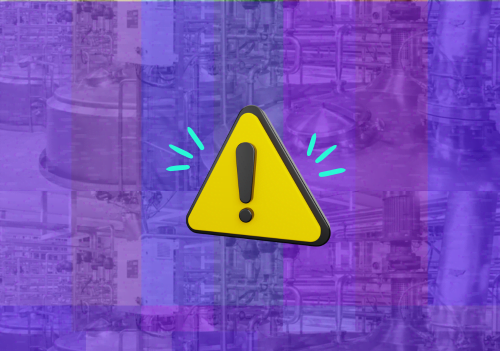Recent graduate of the CCIS course and Cyber Underwriter at Zurich, Ariane Alves delves into the intricacies of cyber risk in the chemical manufacturing industry in this analysis.
The chemical manufacturing industry is an important component of the global economy, producing a wide range of products essential to many sectors, including pharmaceuticals, agriculture, and consumer goods. The industry operates complex processes involving the handling of materials, making safety and precision critical. In recent years, chemical manufacturing has undergone a digital transformation, integrating Operational Technology (OT) for process control and automation, leading to efficiency and quality. The complexity of making chemicals, combined with the increasing use of operational technology and digital tools, makes the industry susceptible to cyber threats.
OT in Chemical Manufacturing
While operational technology (OT) plays a crucial role in the chemical manufacturing industry, it also introduces significant cyber risks. These risks often stem from the interconnectedness of essential OT systems used in chemical production, rendering them susceptible to cyberattacks. What sets these threats apart is their potential to cause tangible, physical consequences rather than solely digital disruptions. Unlike typical data breaches, a cyberattack in a chemical plant can result in accidents during production, equipment failures, or the release of hazardous substances.
Technologies Used in Chemical Manufacturing
The chemical manufacturing industry relies on advanced technologies that play a crucial role in ensuring efficiency. Some of the key technologies utilized in the industry are Distributed Control Systems (DCS), Industrial Control Systems (ICS), and Supervisory Control and Data Acquisition (SCADA).
These systems enable operators to monitor and control diverse parameters, maintaining optimal conditions for chemical reactions and ensuring the quality of the final products. Additionally, ICS provides a centralized platform for managing and automating industrial processes, promoting coordination, and enhancing overall productivity. While these technologies contribute to the industry’s progress, they also introduce new challenges, particularly in terms of cybersecurity.
Addressing Cyber Risk in Chemical Manufacturing
The integration of these technologies introduces significant cyber risk in the chemical manufacturing industry stemming from internal threats, third-party vulnerabilities, and OT risks. Internally, employees’ lack of cybersecurity awareness can lead to compromised security. Additionally, the extensive supply chain in chemical manufacturing introduces third-party cyber risks. Furthermore, integrating OT systems like SCADA and DCS into manufacturing processes poses additional risks, as they are often connected to corporate IT networks, making them susceptible to cyber threats.
In conclusion, as the chemical manufacturing industry embraces digitalization and OT, it encounters cybersecurity risks with potentially grave operational and safety consequences. To mitigate these risks effectively, securing OT systems, enhancing employee training to address internal threats, and diligently managing third-party risks are critical elements of a comprehensive cybersecurity strategy.
Boost your career
Boost your salary
Stay Relevant with the Global Standard in accredited Cyber Insurance Certification.

